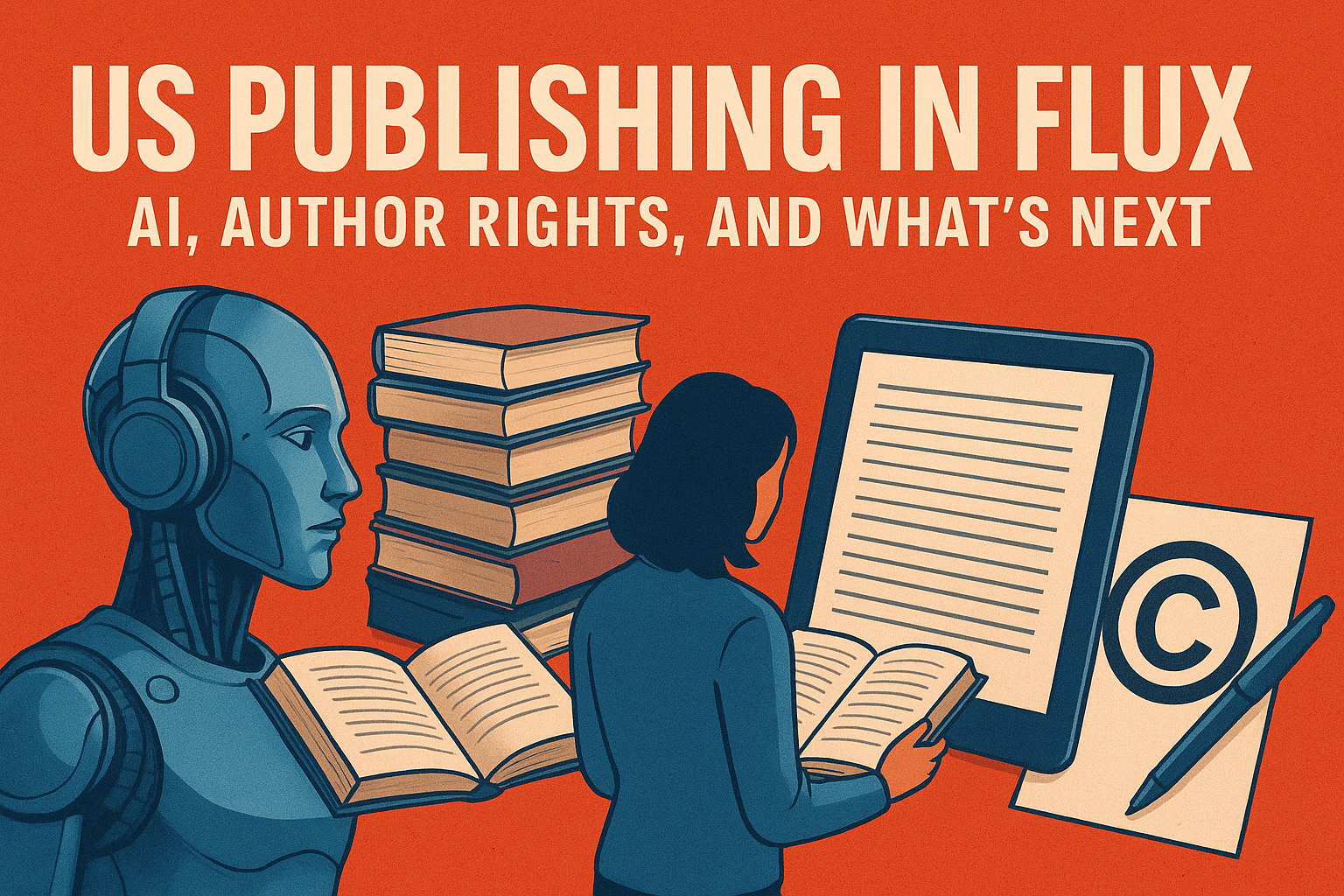The Pros and Cons of Self-Publishing Your Book

Nowadays, self-publishing has increasingly become the preferred route of aspiring authors to make their publishing dreams a reality. Given the new technologies and platforms that are now available with just the click of a button, authors can take control of their own publishing journey without the help of traditional publishing houses.
While self-publishing offers numerous advantages, it also comes with its fair share of challenges and drawbacks. It requires you to embrace these setbacks and use them as opportunities to hone your craft and achieve long-term success.
In this article, we will explore the pros and cons of self-publishing your book. By the end, you’ll have the information you need to make an informed decision on whether to go the self-publishing route or choose another option.
What Is Self-Publishing?
Self-publishing is when you take full control of the entire publication of your own work—from editing, cover design, and formatting to printing, distribution, and marketing—bypassing traditional publishing houses. You use your own resources to make the publishing process happen.
What are the pros and cons of self-publishing your book?
Before you embark on your self-publishing journey, you should be aware of the advantages and disadvantages that come with it.
At a glance, here are the pros and cons of self-publishing your book.
Pros Cons
Creative control Initial costs
Higher royalties Lack of publishing support
Faster publication Limited marketing resources
Global reach Stigma and credibility concerns
Market adaptability Distribution challenges
Pros
Self-publishing offers an excellent opportunity to publish your work on your own terms. Here are some of the advantages of self-publishing:
1. You have full creative control.
2. You earn higher royalties.
3. You can publish your book faster.
4. Your book can reach a global audience.
5. You can market your book based on real-time data.
Let’s explore these advantages further.
1. You have full creative control.
Self-publishing offers you complete creative control of the entire process. You have the freedom to make all decisions regarding your book—from the cover design to the content and marketing strategies. This autonomy allows you to maintain your artistic vision and ensure your book is published exactly as you envisioned it to be. No one will tell you what title to use for your book, what cover art to use, or how to format your book. Everything is according to your wishes.
2. You earn higher royalties.
If you publish through traditional publishing, you will receive a small percentage of the book’s sales. By contrast, with self-publishing, you have the potential to earn higher royalties. Since you cut out the middleman in self-publishing, you get to retain a larger portion of the profits generated from your book sales. If you are looking to make a living from your writing, then this financial benefit is definitely appealing.
3. You can publish your book faster.
Traditional publishing can be a lengthy process. You have to find an agent, secure a publishing deal, and wait for the book’s release—which could take considerable time. Self-publishing eliminates these time-consuming steps, allowing you to bring your book to market much faster. This quick turnaround time can be advantageous if you want to capitalize on current trends or share your work with readers without delay. This is especially beneficial if you already have a dedicated fan base who looks forward to seeing your work get published.
4. Your book can reach a global audience.
With the rise of digital platforms, self-published books can now reach a global audience. If you’re interested in e-books, self-publishing has made it easier for you to distribute your work worldwide. Indeed, you no longer need physical copies or international distribution networks. This global reach will open up new possibilities for you to connect with readers from different parts of the world.
5. You can market your book based on real-time data.
If flexibility or adaptability is an important consideration for you, self-publishing can provide it. Self-publishing allows you to make real-time adjustments based on real-time data. With self-publishing, you can immediately respond to market trends and reader feedback. For instance, you can update the information you provided in your book, change the cover art if your readers respond more positively to a different cover, or adjust the pricing depending on the feedback you receive at a certain time.
Cons
Despite the many benefits of self-publishing, it’s also important to be aware of the challenges and responsibilities that you will have to bear if you choose this type of publishing. Here are some of the disadvantages of self-publishing:
1. You bear the initial costs.
2. You lack publishing support.
3. Your marketing resources are limited.
4. You open yourself to stigma and credibility concerns.
5. You will encounter distribution challenges.
Let’s take a closer look at these disadvantages.
1. You bear the initial costs.
Self-publishing comes with upfront expenses such as cover design, editing, and marketing. You will bear all the costs associated with these aspects of the publishing process. If you’re on a tight budget, you can still self-publish. However, the quality and reach of your book might be significantly affected. You should be prepared to fulfill the financial obligations that come with self-publishing.
2. You lack publishing support.
In traditional publishing houses, you will be provided with a team of industry experts, such as editors, designers, and marketers, who help refine and promote your book. On the other hand, in self-publishing, you must take on these responsibilities yourself. You can, of course, hire your own designer to do your cover art or editor to copyedit your book; but you should be prepared for the financial responsibility that comes with it. If this is your first time to self-publish and you have no background in publishing, not having publishing support can be a daunting experience.
3. Your marketing resources are limited.
Since you have complete creative control in self-publishing, you are also responsible for marketing your books. This aspect of the publishing process requires not only time and effort but more importantly financial investment. If you have no proper marketing strategies and resources, your self-published book may struggle to gain visibility and may not reach your intended audience.
4. You open yourself to stigma and credibility concerns.
Self-publishing used to have a negative reputation, but times have changed, and many authors have now found success through self-publishing. However, although self-publishing is now widely accepted, some people remain biased toward traditionally published books. Considering that you are responsible for the creative aspect of the publishing process, some concerns about the quality of your self-published book may arise. You will have to exert effort to avoid this stigma, and you have to build a solid reputation as a self-published author.
5. You will encounter distribution challenges.
If your interest is in e-books or online distribution, there are digital platforms you can utilize to distribute your work. However, if you aim to place your book in the shelves of bookstores or libraries, this can be a challenging task. The potential reach and visibility of your book may be limited if your target audience prefers to see a physical copy of your book first before purchasing. It is difficult to penetrate physical bookstores if you’re a self-published author because most of them have exclusive deals with major publishers.
Is Self-Publishing Right for You?
Upon learning the pros and cons of self-publishing, you might now be asking yourself, “Is self-publishing the right option for me?” The answer to this question depends on various factors, including your goals, resources, and personal preferences. If you prefer to hold full creative control, have the means to invest in professional services to elevate the quality of your work, and are ready to be responsible for the marketing aspect of your book, then self-publishing can be a fulfilling choice.
However, if you feel disheartened by the financial obligations, marketing efforts necessary to promote your book, and the need for a support system consisting of other authors and publishing professionals, then you may need to consider a different route.
Ultimately, if you have the determination and dedication needed to learn and understand the intricacies of self-publishing, you will be sufficiently equipped to deal with the challenges that will come your way.
Tips for Successful Self-Publishing
Embarking on a self-publishing journey can be a rewarding endeavor, especially if you can overcome the hurdles that accompany it. The following tips can help you navigate the self-publishing process smoothly:
1. Invest in professional editing and cover design.
Your manuscript should be free of grammatical errors, inconsistencies, redundancies, and readability issues so readers will be satisfied with your book and leave positive reviews. Professional editors will ensure your manuscript is free of errors and its quality passes industry standards. Editors will also make suggestions regarding the characterization, setting, and plot of your story. Moreover, having a visually appealing cover will attract readers’ attention. It is the first thing potential readers see. Professional designers can create artwork that captures the theme of your book according to industry standards. Investing in professional editors and designers is crucial in publishing a high-quality book.
2. Build a strong online presence and engage with readers.
In today’s digital world, being visible on social media, having a website, and being present in various online platforms, especially those that are writing and book related, can significantly affect the visibility of your book. To foster a sense of community, you should interact with readers and respond to their feedback, whether positive or constructive. You should nurture a dedicated fan base because not only does it foster a sense of community, but it also promotes word-of-mouth marketing.
3. Utilize self-publishing platforms and tools effectively.
One way of maximizing the reach and impact of your self-published work is by utilizing self-publishing platforms and tools. This is especially beneficial if your emphasis is on e-books. Digital platforms such as Amazon Kindle Direct Publishing can provide access to a huge market of readers. You are not limited to one country. Your work could reach readers from around the world. To succeed, you must make use of keyword optimization and categorization, which can help boost the visibility of your book when potential readers search for keywords related to your work. The market is competitive, so it pays to update yourself on the current self-publishing platforms and tools.
4. Network with other authors and industry professionals.
Fellow authors and industry professionals can be a good support system, which you need in this competitive industry. Networking with these people will enable you to access valuable resources and expertise that will assist you in your self-publishing journey. These professionals can offer advice on how to improve the quality of your book and how to market it effectively to potential readers. Through these connections, you can also stay updated on industry trends, strategies, and technologies to ensure your success in the long term.
5. Continuously improve writing and marketing skills.
Improving your writing and marketing skills is necessary to achieve self-publishing success. You may join workshops, enroll in courses related to writing and marketing, and obtain feedback from peers or professionals. Doing any of these not only helps improve the quality of your work but also boosts the discoverability of your work. You should dedicate time to enhance your craft so you are better equipped to thrive in the industry.
Conclusion
Self-publishing offers a range of advantages, including creative control, higher royalties, faster publication, a global reach, and market adaptability, that make it an attractive choice for many authors. However, its drawbacks, such as upfront costs, lack of publishing support, limited marketing resources, concerns about credibility, and distribution challenges, highlight the need for you to carefully consider and plan every aspect of the publishing process before diving into it.
In the end, the decision to self-publish or pursue traditional publishing houses depends on your goals and resources, as well as your willingness to learn and accept the responsibilities that come with being an independent author.
If you are an aspiring author who is considering self-publishing, you must carefully weigh the pros and cons of self-publishing. Only then can you make an informed decision about the best path for your book.




